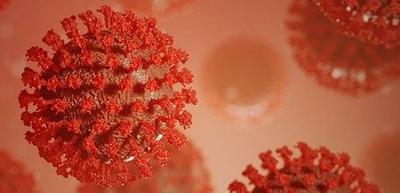COVID-19 effects on the brain revealed

Altered mental status and stroke are the most common neurological symptoms seen in COVID-19 patients, according to a new UK-wide study.
The study, published in The Lancet Psychiatry, comes from The CoroNerve Group, comprised of experts from across the UK in neurology, stroke, psychiatry and intensive care, including Southampton’s Dr Aravinthan Varatharaj.
They used anonymised case reports securely submitted by doctors to identify common neurological symptoms in 153 COVID-19 patients, including altered mental status and stroke.
Gathering the data
The researchers used secure online portals to gather data from members of the Association of British Neurologists (ABN), the British Association of Stroke Physicians (BASP) and the Royal College of Psychiatrists (RCPsych).
During the peak of the first wave of the pandemic, members of these professional organisations were asked to report on neurological symptoms in patients with confirmed or suspected COVID-19. The group also used professional webinars, recorded online presentations, and social media to increase awareness of the study.
The ABN portal was launched on 2 April, the BASP portal on 3 April and the RCPsych portal on April 21, with data collection ending on 26 April 26. Overall they collected data on 153 patients, with complete clinical datasets for 125 patients.
Common symptoms
Of the 125 patients with complete clinical datasets, 77 (62%) had symptoms related to bleeding or clotting in the brain, with the majority of these (57 patients) having a stroke.
They also found 39 patients (31%) who had altered mental status, with nine patients having altered brain function of unclear cause, and seven patients with inflammation of the brain.
While symptoms related to bleeding and clotting in the brain tended to affect older patients, altered mental status was found to affect mainly younger people.
These results could help doctors treating patients with COVID-19 spot these complications, and those treating patients with neurological and psychiatric syndromes identify COVID-19 cases.
The study could also provide a useful starting point for future research into COVID-19 and the brain.
“This was the first nationwide study reporting possible complications of COVID-19 in the nervous system,” commented Dr Aravinthan Varatharaj, MRC Clinical Research Training Fellow at the University of Southampton and Honorary Specialist Registrar in Neurology at University Hospital NHS Foundation Trust.
“Researchers in Southampton, together with teams from across the country, brought this study up and running in record time. We are continuing to study how COVID-19 might affect the brain, the mind, and the nervous system.”